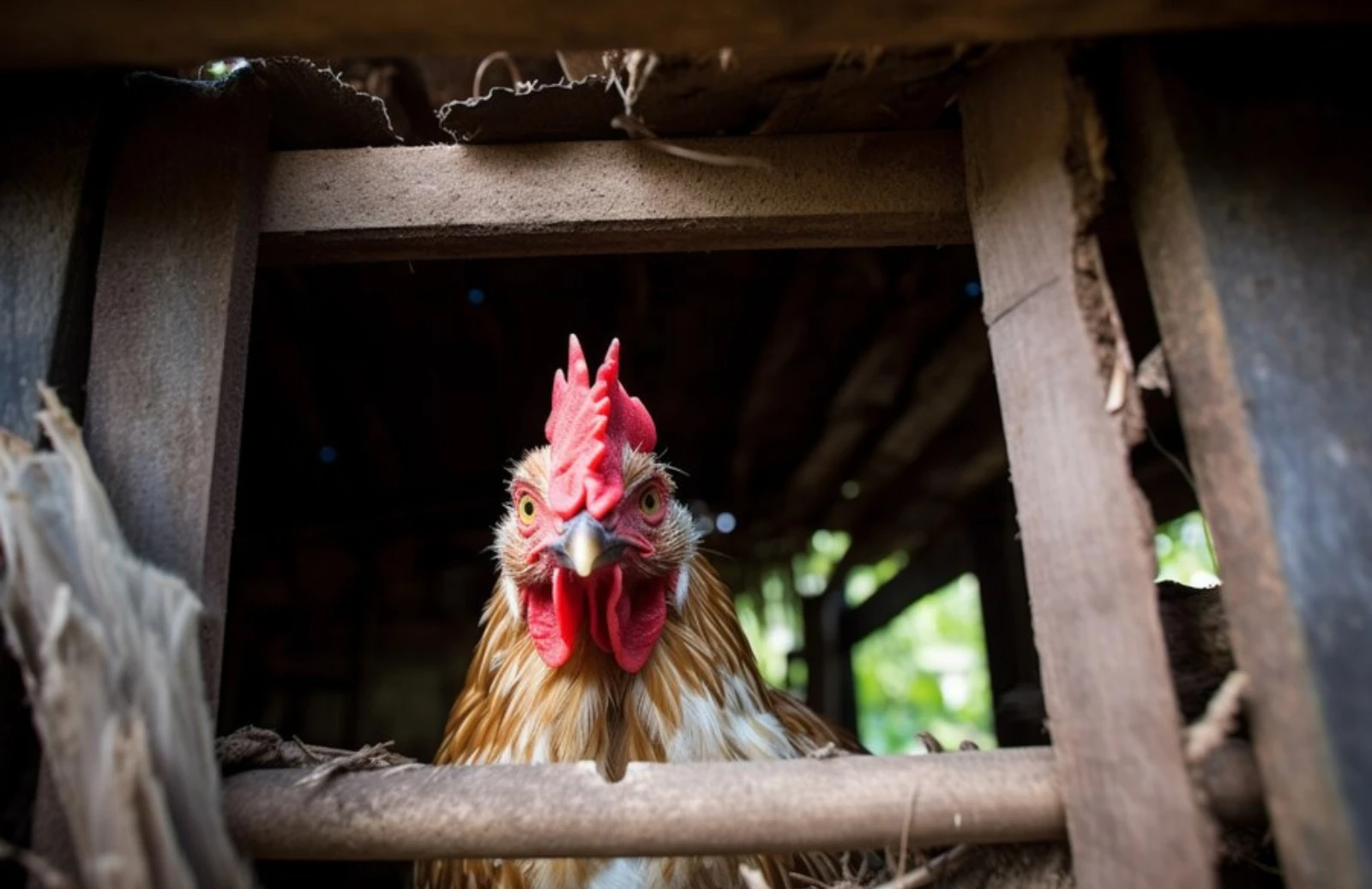In today’s world, where sustainability and health-conscious choices are becoming increasingly important, raising chickens for organic protein has gained significant popularity. Not only do chickens provide a relatively low-effort protein source, but they also offer the added benefits of fresh eggs and nutrient-rich manure for your garden. Whether you’re a novice or a seasoned chicken keeper, optimizing your chicken coop setup and management can greatly enhance your organic protein production. Here are some secrets to help you achieve just that:
- Optimal Coop Size: Provide at least 2-3 square feet of coop space per chicken to ensure they have ample room to move around comfortably.
- Natural Lighting: Maximize natural light in the coop to promote healthier egg production and happier chickens.
- Ventilation: Install proper ventilation to prevent moisture buildup, which can lead to respiratory issues and ammonia odors.
- Predator Protection: Secure the coop with sturdy fencing and locks to safeguard your chickens from predators like foxes, raccoons, and birds of prey.
- Nesting Boxes: Create cozy nesting boxes filled with clean bedding material for your hens to lay their eggs comfortably.
- Roosting Perches: Install roosting perches at varying heights to accommodate chickens’ instinct to perch while resting.
- Easy Access to Food and Water: Ensure food and water sources are easily accessible to all chickens to encourage healthy eating and drinking habits.
- Regular Cleaning: Maintain cleanliness by regularly removing soiled bedding and droppings to prevent the spread of diseases and pests.
- Compost System: Utilize chicken manure as a valuable component in your compost system to enrich your garden soil naturally.
- Deep Litter Method: Implement the deep litter method by adding layers of bedding material to promote composting and reduce odor.
- Dust Bath Area: Provide a designated dust bath area filled with fine sand or diatomaceous earth to help chickens keep their feathers clean and free of parasites.
- Herb Garden: Plant herbs like lavender, mint, and oregano around the coop to naturally repel insects and soothe chickens’ respiratory systems.
- Companion Planting: Integrate companion plants such as marigolds and nasturtiums to deter pests and attract beneficial insects to your chicken coop area.
- Solar-Powered Lighting: Install solar-powered lights for nighttime illumination in and around the coop, reducing energy costs and providing security.
- Portable Coop Design: Consider a portable or tractor coop design to allow chickens access to fresh pasture while protecting them from predators.
- Automatic Door Opener: Invest in an automatic door opener to ensure your chickens are safely locked inside the coop at night and let out at dawn.
- Rainwater Collection: Set up a rainwater collection system to provide your chickens with fresh water while reducing water bills.
- Heat Source in Winter: Install a safe heat source such as a radiant heater or heated perch to keep chickens warm during cold winter months.
- Free-Range Time: Allow chickens supervised free-range time to forage for insects, grass, and other natural food sources, enriching their diet and mental stimulation.
- Comprehensive First-Aid Kit: Keep a well-stocked first-aid kit on hand to promptly address any injuries or health issues that may arise.
- Regular Health Checks: Schedule regular health checks for your chickens to monitor for signs of illness or parasites and address them promptly.
- Preventative Measures: Practice biosecurity measures to prevent the introduction and spread of diseases, including quarantining new birds and limiting visitors to the coop.
- Proper Nutrition: Provide a balanced diet consisting of high-quality feed supplemented with kitchen scraps, greens, and protein-rich treats like mealworms.
- Grit Supply: Offer insoluble grit to aid in chickens’ digestion of grains and fibrous foods, promoting overall gut health.
- Molting Support: During molting periods, supplement chickens’ diets with extra protein to support feather regrowth and overall health.
- Egg Collection Frequency: Collect eggs frequently to prevent hens from becoming broody and reduce the risk of egg breakage and contamination.
- Egg Storage: Store collected eggs in a cool, dry place with the pointed end down to maintain freshness and extend shelf life.
- Egg Rotation: Practice egg rotation by using the oldest eggs first to ensure you always have a fresh supply on hand.
- Record Keeping: Keep detailed records of egg production, feed consumption, and health observations to track your flock’s performance and identify any trends or issues.
- Flock Integration: Introduce new birds to the flock gradually to minimize stress and aggression, allowing for smoother integration.
- Behavioral Enrichment: Provide enrichment activities such as hanging treats, mirrors, and boredom busters to prevent boredom and reduce pecking behavior.
- Noise Reduction: Minimize noise disturbances around the coop to reduce stress levels in chickens and promote better egg production.
- Routine Maintenance: Conduct regular maintenance checks on the coop structure, fencing, and equipment to address any issues promptly and prevent accidents.
- Community Engagement: Join online forums or local poultry clubs to connect with other chicken enthusiasts, share knowledge, and seek advice when needed.
- Natural Pest Control: Introduce natural predators like ducks or guinea fowl to control pest populations around the coop, reducing the need for chemical interventions.
- Emergency Preparedness: Have a contingency plan in place for emergencies such as power outages or extreme weather events to ensure the safety and well-being of your chickens.
- Seasonal Adjustments: Make seasonal adjustments to coop management practices, such as providing extra shade and ventilation in summer or supplemental heat in winter.
- Regular Fence Checks: Inspect fencing regularly for signs of wear or damage and make repairs as needed to maintain security.
- Egg Incubation: Consider hatching your chicks by investing in an incubator or allowing broody hens to hatch eggs naturally.
- Responsible Disposal: Dispose of chicken waste responsibly by composting or using it as fertilizer in designated areas away from water sources.
- Alternative Bedding Options: Explore alternative bedding options such as straw, wood shavings, or shredded paper to find what works best for your coop.
- Natural Pest Repellents: Utilize natural pest repellents like garlic or citrus sprays to deter insects and rodents from entering the coop.
- Coop Location: Choose a well-drained location for your coop site to prevent flooding and minimize mud buildup, which can attract pests and cause health issues for chickens.
- Routine Parasite Checks: Conduct routine parasite checks on chickens and coop bedding to detect and treat infestations promptly.
- Egg Candling: Learn how to candle eggs to check for fertility and embryo development, especially if you plan on hatching chicks.
- Emergency Contact Information: Keep a list of emergency contact information for local veterinarians or poultry experts in case of urgent health concerns.
- Chick Care: Provide proper care and attention to newly hatched chicks, including warmth, nutrition, and protection from predators.
- Natural Supplements: Consider supplementing chickens’ diets with natural additives like apple cider vinegar or prob









